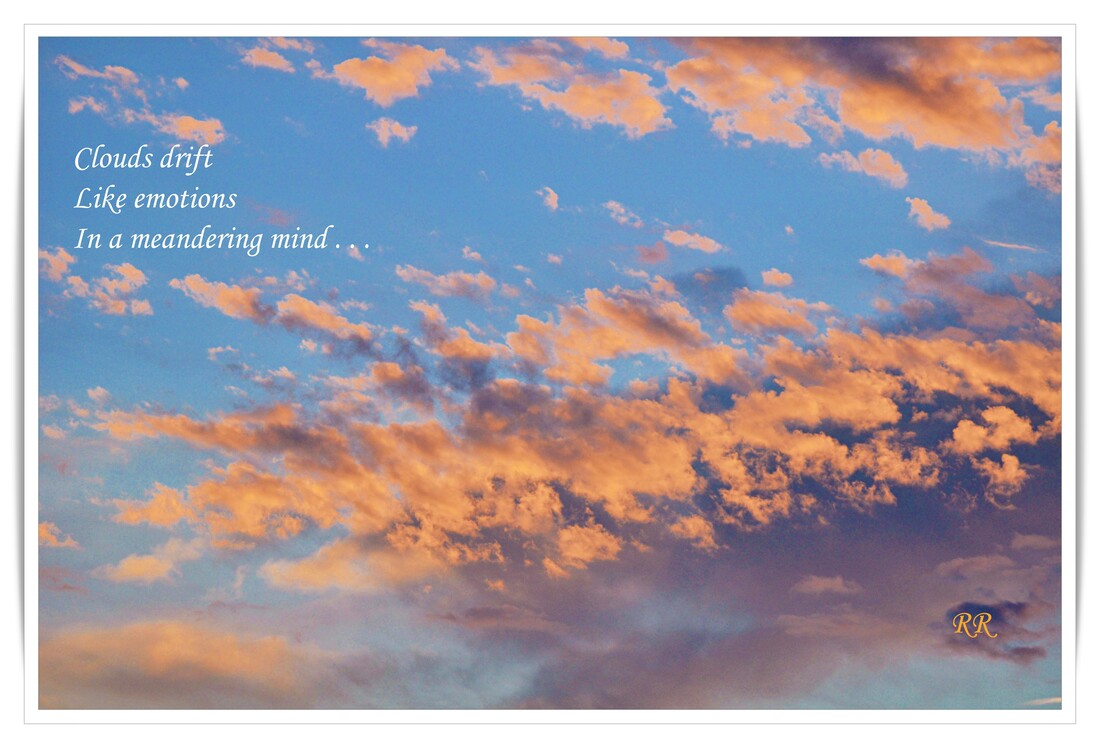The clouds are like islands amidst the vast expanse of the sky and with the onslaught of the covid-19 infection, we have been marooned in our own private islets for the past several months.
As the clouds meander to ensnare the light of the sun like pages in a book, I was also reaching out to books, finding solace and company in the web of words. In the process I often travelled back in time re-reading and re-discovering books without stepping out of my room during the enforced confinement due to covid-19. While words cannot always do justice to the extent of suffering from pandemics, fiction can sometimes offer us insights and this is particularly true of Portuguese writer José Saramago's book ‘Blindness’.
The novel chronicles an unprecedented pandemic of blindness that sweeps across an unnamed country. In the opening paragraph we find a man at a traffic stop. He is unable to move as he suddenly becomes blind and abruptly his world is enveloped in milky whiteness. He rushes to an ophthalmologist who examines him but cannot find any cause for it. He tells his patient to go home, assuring him that he will be contacted as soon as he finds a remedy for it. As the man leaves the clinic he infects everyone in it, including the doctor. Miraculously only the doctor’s wife retains her sight. Soon the blindness goes viral, spreads widely infecting everyone in the city. Since there never has been such a pandemic of this kind, people soon realize that there is no effective treatment for it. It becomes a national catastrophe and people are isolated and put in quarantine in a large asylum. There they face tremendous odds and immense suffering. The origin and inexplicable nature of this blindness causes intense panic and the social order rapidly crumbles, while the government attempts in vain to suppress the contagion with much ineptness.
And in the end, as mysteriously as it came, the blindness pandemic disappears. When they emerge from quarantine, people find that the city has changed forever. Soon their world buzzes with inexplicable optimism. But the doctor's wife who was witness to the suffering during the pandemic wonders how people could forget it all. She reflects: “I don't think we did go blind, I think we are blind, blind but seeing, blind people who can see, but do not see.” The people of the fictional city erased the memory of the pandemic and mysterious factors that caused it.
Isn’t the same true of the covid-19 pandemic, which has exposed many inequalities in health care systems, fragile social safety nets and structural issues with regard to the environment? Yet we seem to be refusing to look at them or are already forgetting about them. One day, covid-19, too, shall pass. What will remain? Will we remember the solitude of the quarantine, suffering from financial hardships and the loss of loved ones?
How are we going to emerge from all this? Will we learn anything from it? Will we begin to change our habits, be more respectful of the environment and of each other? Likewise, we who elect those in power will also have to reflect on the epidemic of collective blindness to fundamentalism and intolerance that is steadily eroding moral fabric across nations.
In his poetic masterwork Aniara, the great Swedish writer and Nobel laureate Harry Martinson narrated the journey of thousands of people fleeing in a space ship from an earth devastated and made uninhabitable by man’s technological arrogance. A malfunction knocks the craft off course, taking them on an irreversible journey into deep space. There is no going back home as there is no hope for a rescue. They continue to live within the spacecraft with the dawning awareness that they will be condemned to drift around the endless void of space forever and they are gripped by fear about their future. In this haunting allegorical tale, Martinson warns of humanity hurtling in the wrong direction and realizing too late that there is no turning back.
As we isolate ourselves in our quarantine bubbles, hardly do we realize we are already on board Aniara and our plight is much akin to the people confined within it. In Aeschylus’s play Prometheus Bound, the chorus asks Prometheus, “What cure did you discover for their misery?” And Prometheus responds, “I planted firmly in their hearts blind hopefulness.” But blind hope is a fickle companion when we are in throes of climate change and devastating environmental vandalism. Catastrophic loss in biodiversity coupled with reckless deforestation and aggressive conversion of forests for economic development has pushed people closer to wilderness opening the gates for the spread of zoonotic diseases like covid-19.
The German philosopher Walter Benjamin, having survived the devastating flu pandemic in 1918, observed poignantly “A generation that had gone to school on a horse-drawn streetcar now stood under the open sky in a countryside in which nothing remained unchanged but the clouds, and beneath these clouds, in a field of destruction, was the tiny, fragile human body,”
Our lives are as brief in the face of historical time as those of fireflies at night and it is imperative that we part the screen of willful blindness that obscures our eyes to an exhausted, ravaged world and start healing it.
As I look through the window, the sun is peeking through the clouds, streaming across the trees creating mysterious shadows. The early morning dew is glistening on the grass, but there is a frailty in the bed of grass that no one notices…
We won’t know
How fragile our lives are
Until we part the black veil
That blinds us
And cast our eyes
On the earth beneath our feet
Scarred by our hubris . . .
Looking forward to your reflections on this post and the year it has been for all of you…
KINDLY POST THEM HERE!

 RSS Feed
RSS Feed